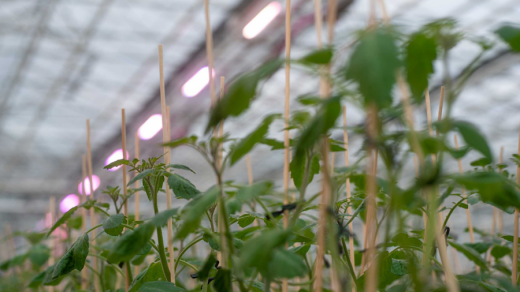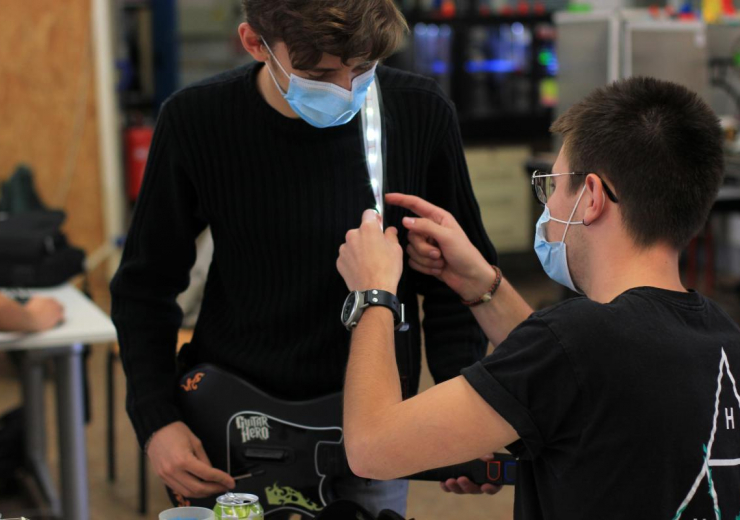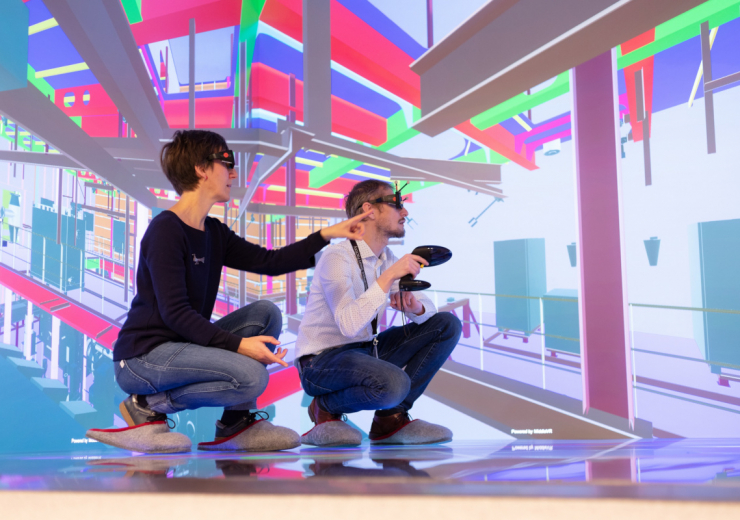The Atlantic France region is the 2nd largest French employer of agricultural workers, with 10,803 employers, 85,728 employees, and 27,093 FTEs in the production sector (source: ANEFA – French National Association for Employment and Training in Agriculture). All the major players in the agricultural sector are present in the region, from those who specialise in machinery and equipment for farmers, to those who specialise in seed, and plant production or distribution.
With the digitalisation and automation of the agricultural sector, SMEs and startups are offering connected tools to farms, while others are trying to respond to ecological problems by providing more responsible and environmentally-friendly solutions.
Connected equipment for smart farms
Trektor: the first autonomous hybrid tractor
In the region, startups and SMEs in IoT and digitalisation provide innovative solutions to farmers such as Sitia, which specialises in test benches and robotic innovation. With 27 employees, the SME based in Bouguenais, near Nantes, has created the “first autonomous hybrid tractor”, called Trektor.
The aim of this robot is to manage redundant tasks in different crops, such as viticulture, market gardening, open-field vegetable growing, and arboriculture. The company prides itself on its ability to meet the growing need for manpower as the use of pesticides declines.
Trektor is configured via a mobile application. Everything is recorded there: the traceability of its tasks, its speed, and its output. Since 2021, 35 machines have been sold by around ten French distributors. The company is now ready to move to the industrial production of its tractor-robot.
RED Horticulture: an innovation centre in agronomics and photobiology
The region is also attracting investment from national companies. Lyon-based company RED Horticulture has just inaugurated its innovation centre, which is dedicated to agronomic trials and photobiology, in Saint-Herblain, near Nantes.
The company specialises in optimising light for greenhouse cultivation. The centre, which stands for Photobiology & Agronomic Research Center (PARC), is an experimentation laboratory, training centre, and demonstration site, and also houses a sales office.
Its LED lighting solutions, designed in France, enable the use of tailor-made light spectra, which are adapted to each variety and each stage of development, as well as to variations in energy prices. With this new site, RED Horticulture aims to become part of a regional dynamic and get closer to its customers.
Aptimiz: an app to optimise farms’ human and material resources
The technology can also be used to simplify the management of a farm’s human and material resources. This is the niche in which the young Anjou-based company Aptimiz has specialised, and it recently announced that it has finalised a €3.1 million round of financing.
With this funding, the startup intends to accelerate its roll-out in France and Europe. Founded in Angers in 2018 by three farmers’ sons, Aptimiz helps farmers manage their human and material resources using software and a smartphone application. This tool is already used by 1,500 professionals.
Plant and seed production
Citrulus & Amarenco: photovoltaic greenhouses
To combine market-garden production with renewable energy production, Citrulus, a market-garden farm in Vendée, has joined forces with Amarenco, an independent Franco-Irish producer of photovoltaic energy.
It will be installing four photovoltaic greenhouses covering an area of 33,500 sqm. With an installed capacity of around 4.8 MWp, the project will generate just over 6,000 MWh a year, equivalent to the electricity consumption of almost 3,000 people (including heating), according to Amarenco. These greenhouses will enable Citrulus to develop its early vegetable and fruit crops.
Florentaise: developing alternatives to peat
Florentaise, a company based in Nantes, is developing alternative growing substrates to peat to combat the degradation of peat bogs, the use of which is becoming increasingly regulated and will soon be banned.
The company has announced plans to float on Euronext Growth to launch a new phase in its development. The company hopes to accelerate its development of alternatives to peat. Florentaise, which still operates the last peat bog in France, in Baupte (50), has been developing its “Hortifibre” and “Turbofibre” products, which are based on wood fibre and bark from sawmill waste.
As a result, Florentaise has reduced the amount of peat used in its potting soils by 23% and plans to eliminate it for good by 2030. From its sales of €57.5 million in 2022, it expects to reach €120 million by 2027.


 日本語
日本語  Français
Français 



